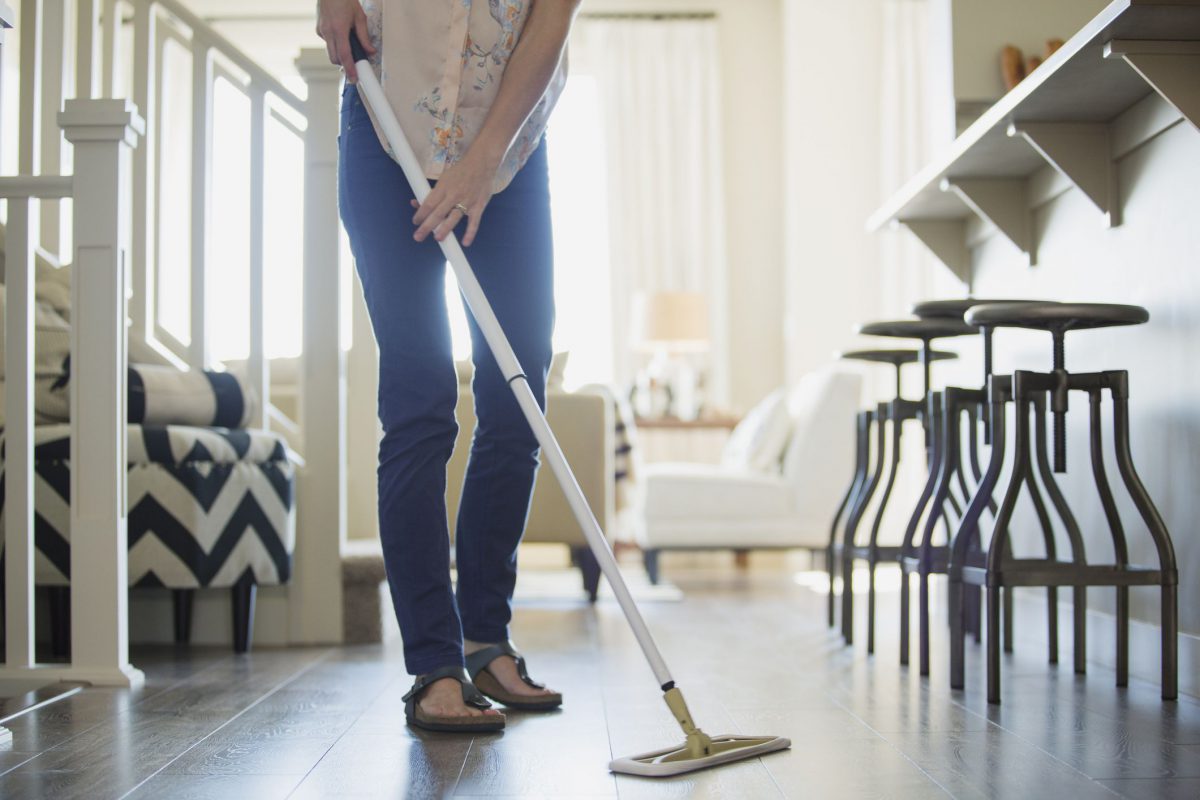With the change of each season comes a new set of maintenance tasks for your home. Now that summer’s here, you’ll want to prepare your home and yard for the onslaught of summer heat. From air-conditioner upkeep to hanging a clothesline, these simple chores will help keep your home happy and healthy.
Check detectors. Check your home’s smoke and carbon monoxide detectors to make sure they’re working properly.
Inspect air-conditioners. If you haven’t already, prep air conditioners and fans for their busiest season:
- Clean all ceiling fans and other fans with a damp rag. If you have high ceilings, a ceiling-fan duster can help you de-grime hard-to-reach blades.
- With the help of your spouse, install window air-conditioning units. Remove and clean the filters before firing up the AC. If you have central air-conditioning, consider a professional servicing.
Enjoy a dry spell. Install an outdoor clothesline to dry your laundry in the summer sun; you’ll save money and energy by skipping the dryer. Plus, who doesn’t love the smell of air-dried sheets?
Clean your outdoor cooker. Give your grill a deep cleaning with these simple steps:
- For gas grills, turn the heat up to high and let the grill cook with the lid closed for about half an hour. Allow the grill to cool and then brush it off with a grill brush. Wipe down the exterior with a damp sponge and a gentle cleanser. Clean the grill’s drip pans.
- For charcoal grills, completely empty the grill and wipe out any ashy residue. Then clean it inside and out with hot water, a scrubby sponge and some liquid dishwashing soap. Let the grill dry completely before using it again.
Polish your porch. Thoroughly sweep painted porch floors; then mop them with an all-purpose cleaner. If there’s a lot of built-up dirt on the floorboards, you may need to scrub them with a brush.
Wash your windows. If you didn’t tackle exterior window washing in the spring, now’s the time to get your glass clean.
Make much ado about mulch. Add a layer of mulch to keep weeds down and help the ground retain its moisture in the heat. It’ll give your plants a chance to grow.
Be a leak detective. Check your hoses and exterior faucets for leaks — even a tiny drip can add up to a big waste of water. Pinhole leaks in hoses can be covered up by winding regular electrical tape around the (dry) hose in overlapping layers.
Primp your plants. Deadhead both perennials and annuals to keep them productive. If you have visible dead foliage from spring bulbs, pull it out to maintain a tidy look, but if the daffodil or tulip leaves are still green, leave them alone; they’re busy nourishing the bulb to bloom again next year.
Plan your watering schedule. Train your garden to endure dry days by watering deeply a couple times a week, instead of watering lightly daily. This style of watering will promote the growth of deep, strong roots.
Stop dirt at the door. Keep summer’s mud and muck outside with not one, but two doormats at your main entry door. Place a coarse mat at the exterior and a softer, cloth one on the interior to catch the most dirt. Better still, instruct family members to remove their shoes upon entering. If you live near a beach, a tub of water for sandy feet placed by the door works wonders for keeping sand outside where it belongs.
Analyze your deck. Look over your deck for signs of rotting and hammer in any nails that are poking up. Then, determine if your deck needs sealing. Sprinkle water on the deck’s boards. If the water beads up, you’re in good shape; but if it soaks right in, it’s time to reseal that sucker.

